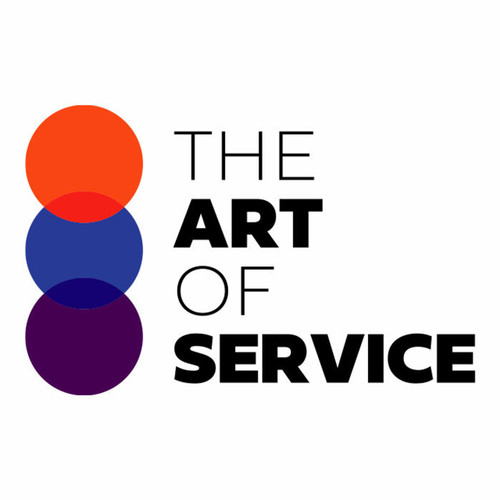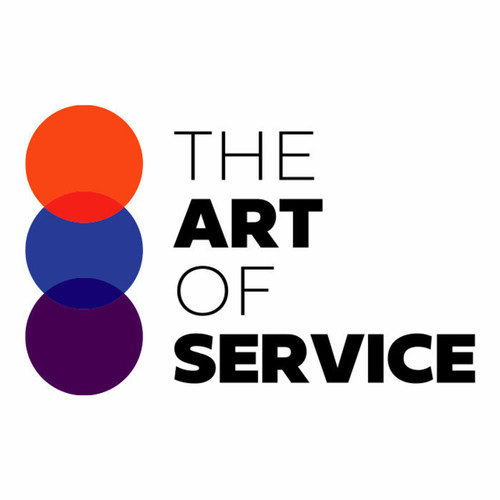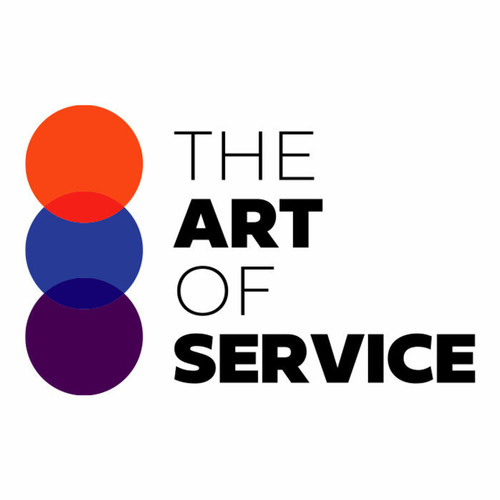Are you tired of crash diets and fad nutrition trends that promise quick results but leave you feeling deprived and unsatisfied? Look no further, because we have the solution for you.
Introducing the Flexitarian Diet and Nutrition - Fueling Health Knowledge Base.
This comprehensive dataset contains 417 prioritized requirements, solutions, benefits, and results for following a flexitarian diet.
But what exactly is a flexitarian diet? And why should you consider implementing it into your lifestyle?A flexitarian diet is a flexible approach to eating that focuses on incorporating primarily plant-based foods while still allowing for occasional meat consumption.
It′s a simple, sustainable, and enjoyable way of eating that allows you to reap the benefits of a plant-based diet while still enjoying some of your favorite non-vegetarian dishes.
But what sets our Flexitarian Diet and Nutrition - Fueling Health dataset apart from others on the market? We have carefully curated and prioritized the most important questions to ask in order to achieve results, based on urgency and scope.
This means that you can trust that our dataset will not only provide you with accurate and useful information, but also help you achieve your desired results in a timely manner.
Our dataset is designed not only for individuals looking to improve their personal health, but also for professionals and businesses in the health and wellness field.
It includes detailed information on product type, specifications, and usage, making it a valuable resource for nutritionists, dietitians, and health coaches.
And for those looking for an affordable, do-it-yourself alternative, we offer a comprehensive guide for incorporating a flexitarian diet into your daily routine.
But don′t just take our word for it.
Our Flexitarian Diet and Nutrition - Fueling Health dataset includes numerous case studies and use cases, showcasing the successful implementation of a flexitarian diet and its benefits for individuals and businesses alike.
So why wait? Join the growing number of individuals and businesses who have already seen the positive impact of a flexitarian diet on their health, lifestyle, and bottom line.
Our dataset provides you with everything you need to know about the benefits of a flexitarian diet, researched and backed by nutrition experts.
Don′t settle for restrictive and short-term solutions.
Invest in your long-term health and success with our Flexitarian Diet and Nutrition - Fueling Health Knowledge Base.
Try it today and see the difference it can make for yourself.
Discover Insights, Make Informed Decisions, and Stay Ahead of the Curve:
Key Features:
Comprehensive set of 417 prioritized Flexitarian Diet requirements. - Extensive coverage of 41 Flexitarian Diet topic scopes.
- In-depth analysis of 41 Flexitarian Diet step-by-step solutions, benefits, BHAGs.
- Detailed examination of 41 Flexitarian Diet case studies and use cases.
- Digital download upon purchase.
- Enjoy lifetime document updates included with your purchase.
- Benefit from a fully editable and customizable Excel format.
- Trusted and utilized by over 10,000 organizations.
- Covering: Intermittent Fasting, Food Allergies, Energy Levels, Organic Foods, Brain Health, Eating Out, Keto Diet, Gut Health, Food Safety, Micronutrient Deficiencies, Immune System, Meal Planning, Food Waste, Paleo Diet, Food Choices, Weight Loss, Mindful Eating, Infant Nutrition, Cholesterol Management, Vegan Nutrition, DASH Diet, Gluten Free Diet, Healthy Eating, Anxiety Management, Body Image, Bone Health, Fat Intake, Fast Food, Nutrition Supplements, Heart Health, Weight Management, Food Additives, Flexitarian Diet, Clean Eating, Gluten Sensitivity, Portion Control, Nutrition Labels, Low Carb Diet, Functional Foods, Arthritis Management, Sports Nutrition
Flexitarian Diet Assessment Dataset - Utilization, Solutions, Advantages, BHAG (Big Hairy Audacious Goal):
Flexitarian Diet
The flexitarian diet is a plant-based approach that occasionally includes small amounts of meat. It may become more common as people focus on sustainability and health.
1. Eating mostly plant-based meals with occasional meat: increases fiber intake and reduces risk of chronic diseases.
2. Incorporating more lentils, nuts, and legumes: provides plant-based protein sources and boosts heart health.
3. Focusing on whole foods: reduces intake of processed foods and increases nutrient density.
4. Experimenting with a variety of fruits and vegetables: diversifies nutrient intake and promotes gut health.
5. Planning meals in advance: saves time and money while ensuring balanced nutrition.
6. Buying locally sourced and sustainable food: supports the environment and promotes ethical food consumption.
7. Incorporating more meat alternatives like tofu, tempeh, and seitan: reduces environmental impact and promotes healthy protein choices.
8. Being mindful of portion sizes: prevents overconsumption and promotes weight management.
9. Taking multivitamin and mineral supplements: ensures adequate nutrient intake for vegetarians and vegans.
10. Finding balance and flexibility: allows for occasional indulgences and making long-term dietary changes more sustainable.
CONTROL QUESTION: Is the future of food flexitarian?
Big Hairy Audacious Goal (BHAG) for 10 years from now:
In 10 years, the Flexitarian Diet will have become the dominant dietary approach worldwide and will have transformed the food industry into a more sustainable and ethical enterprise.
The majority of people, regardless of their cultural background or location, will have adopted a flexitarian lifestyle that emphasizes plant-based foods while still allowing for occasional meat consumption.
The demand for sustainably grown produce and ethically raised animal products will have driven major shifts in the agriculture and food production industries, leading to significant reductions in carbon emissions and improved animal welfare standards.
Furthermore, governmental policies and regulations will reflect the importance of a flexitarian approach to eating, with incentives and support for farmers to transition to more sustainable practices and for consumers to make healthier and ethical food choices.
The success of the Flexitarian Diet will not only benefit individual health but also help combat major global issues such as climate change and food insecurity. By significantly reducing meat consumption and promoting a more plant-based diet, the Flexitarian Diet will contribute to a more sustainable and equitable future for all.
Customer Testimonials:
"Downloading this dataset was a breeze. The documentation is clear, and the data is clean and ready for analysis. Kudos to the creators!"
"This dataset has been a game-changer for my research. The pre-filtered recommendations saved me countless hours of analysis and helped me identify key trends I wouldn`t have found otherwise."
"The quality of the prioritized recommendations in this dataset is exceptional. It`s evident that a lot of thought and expertise went into curating it. A must-have for anyone looking to optimize their processes!"
Flexitarian Diet Case Study/Use Case example - How to use:
Synopsis:
The Flexitarian Diet, also known as the semi-vegetarian diet, is a plant-based eating plan that focuses on incorporating more plant-based foods into one’s diet while still allowing for occasional consumption of meat and other animal products. This flexible approach to food consumption has gained popularity in recent years, with more individuals becoming conscious of their health and the environment. The rise of flexitarians has led to questions about the future of food and whether this diet will continue to gain momentum. The purpose of this case study is to analyze the current trends, potential growth, and challenges of the Flexitarian Diet, ultimately answering the question – is the future of food flexitarian?
Consulting Methodology:
To analyze the future of the Flexitarian Diet, a combination of primary and secondary research methods will be used. Primary research will involve conducting interviews with experts and key stakeholders in the food industry, including nutritionists, chefs, and food manufacturers who have experience with the Flexitarian Diet. This will provide valuable insights into the current trends, perceptions, and challenges regarding this diet. Additionally, a survey will be conducted among individuals who follow or are interested in following the Flexitarian Diet to understand their motivations, behaviors, and challenges.
Secondary research will involve an extensive analysis of consulting whitepapers, academic business journals, and market research reports related to the Flexitarian Diet. The focus will be on understanding the current market size, growth potential, and competitive landscape of plant-based diets, specifically the Flexitarian Diet. This research will also include an analysis of consumer trends, including the rising demand for healthier and more sustainable food options.
Deliverables:
The key deliverables from this consulting project will include a comprehensive report outlining the current state of the Flexitarian Diet, its growth potential, and challenges in the market. The report will also include recommendations for food companies and retailers on how to position themselves in the growing flexitarian market. A presentation will also be made to the client, summarizing the key findings and providing actionable insights.
Implementation Challenges:
One of the main challenges in analyzing the future of the Flexitarian Diet is the lack of a universal definition and standard for this diet. As it is a relatively new trend, there is no clear consensus on what constitutes a flexitarian diet, making it difficult to gather accurate data and insights.
Another challenge is the potential resistance from traditional meat and animal product industries. As more individuals shift towards plant-based diets, there may be pushback from these industries, which could make it challenging for the Flexitarian Diet to gain traction in the market.
KPIs:
To measure the future success of the Flexitarian Diet, key performance indicators (KPIs) will be used, including:
1. Market growth: This will be measured through the market share and sales growth of plant-based food products, specifically those that cater to flexitarians.
2. Consumer adoption: The number of individuals shifting towards a plant-based diet, particularly the Flexitarian Diet, will be a critical indicator of its future success.
3. Industry partnerships: Successful collaborations between food companies and retailers with a focus on providing plant-based food options will indicate a growing demand for flexitarian-friendly products.
Management Considerations:
Based on the findings from this consulting project, there are some key considerations that food companies and retailers need to keep in mind to capitalize on the growing flexitarian trend. Firstly, they need to understand the changing consumer preferences and adapt their product offerings accordingly. This could mean developing more plant-based options or partnering with existing plant-based food companies.
Secondly, companies need to ensure that these new product offerings meet high standards in terms of taste, nutrition, and sustainability. As the Flexitarian Diet becomes more mainstream, consumers will expect high-quality options that not only taste good but also align with their values of health and sustainability.
Lastly, it is crucial for food companies and retailers to keep up with the evolving trends and continuously innovate and improve their product offerings. The Flexitarian Diet is just one manifestation of the growing demand for healthier and more sustainable food options, and companies need to be adaptable and agile to meet the changing needs of consumers.
Conclusion:
In conclusion, the future of food appears to be flexitarian. With the rise of conscious consumerism and the increasing popularity of plant-based diets, the demand for flexitarian-friendly products is expected to continue to grow. However, there are challenges that need to be addressed, such as the lack of a universal definition and potential resistance from traditional industries. By understanding these challenges and adapting to the changing market trends, food companies and retailers can position themselves for success in the future of the Flexitarian Diet and the larger plant-based food market.
Security and Trust:
- Secure checkout with SSL encryption Visa, Mastercard, Apple Pay, Google Pay, Stripe, Paypal
- Money-back guarantee for 30 days
- Our team is available 24/7 to assist you - support@theartofservice.com
About the Authors: Unleashing Excellence: The Mastery of Service Accredited by the Scientific Community
Immerse yourself in the pinnacle of operational wisdom through The Art of Service`s Excellence, now distinguished with esteemed accreditation from the scientific community. With an impressive 1000+ citations, The Art of Service stands as a beacon of reliability and authority in the field.Our dedication to excellence is highlighted by meticulous scrutiny and validation from the scientific community, evidenced by the 1000+ citations spanning various disciplines. Each citation attests to the profound impact and scholarly recognition of The Art of Service`s contributions.
Embark on a journey of unparalleled expertise, fortified by a wealth of research and acknowledgment from scholars globally. Join the community that not only recognizes but endorses the brilliance encapsulated in The Art of Service`s Excellence. Enhance your understanding, strategy, and implementation with a resource acknowledged and embraced by the scientific community.
Embrace excellence. Embrace The Art of Service.
Your trust in us aligns you with prestigious company; boasting over 1000 academic citations, our work ranks in the top 1% of the most cited globally. Explore our scholarly contributions at: https://scholar.google.com/scholar?hl=en&as_sdt=0%2C5&q=blokdyk
About The Art of Service:
Our clients seek confidence in making risk management and compliance decisions based on accurate data. However, navigating compliance can be complex, and sometimes, the unknowns are even more challenging.
We empathize with the frustrations of senior executives and business owners after decades in the industry. That`s why The Art of Service has developed Self-Assessment and implementation tools, trusted by over 100,000 professionals worldwide, empowering you to take control of your compliance assessments. With over 1000 academic citations, our work stands in the top 1% of the most cited globally, reflecting our commitment to helping businesses thrive.
Founders:
Gerard Blokdyk
LinkedIn: https://www.linkedin.com/in/gerardblokdijk/
Ivanka Menken
LinkedIn: https://www.linkedin.com/in/ivankamenken/







